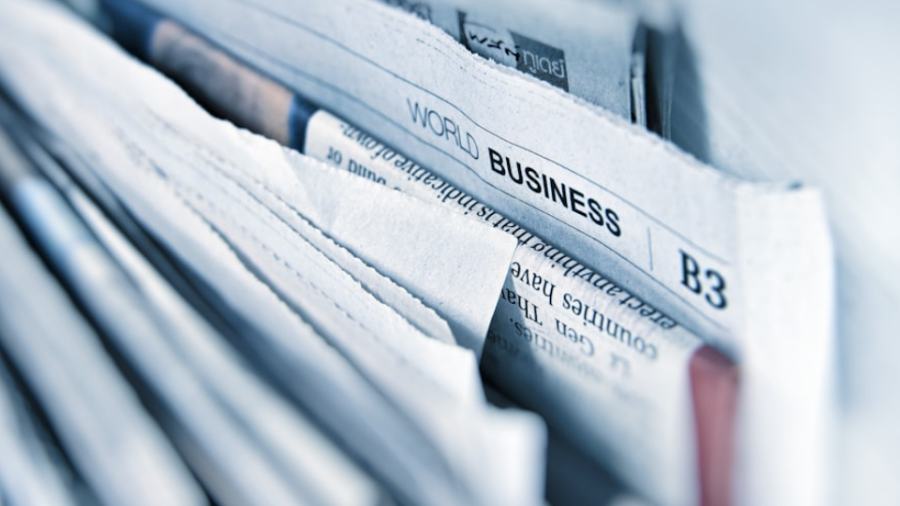How long could we possibly have gone before AI was integrated into nearly every aspect of our lives? AI helps us find routes to work, helps us know which websites we can trust and which we can’t, helps us find restaurants to eat at, and shows us movies and TV series we might like, and musicians we might enjoy. For the last couple of decades, it seems it’s been a valuable resource for our news as well.
Computers in the newsroom are nothing new. Where once there were typewriters and notebooks, now the journalistic office is characterized by tables and tables of laptops, cell phones, and digital buzz. While the ethics of AI in human-dominated vocations is hotly debated, the question is simply this:
What can modern computing offer that an online Masters of Journalism can’t?
Artificial Intelligence
If you’re still unaware of what AI is, it stands for “artificial intelligence.” What it means is essentially a machine or computer that can compute (or ‘think’) in a way that resembles human cognition: i.e., input, analysis, understanding, application, and output.
What we essentially have is a machine that can learn and apply knowledge like a human, but with the only limitation being when a person hits the off switch. Many people say that this form of computing is dangerous in varying degrees for varying reasons – however today we’re examining the ethical implications of such a thing in the journalism sphere.
Ethics in Journalism
The Society for Professional Journalists has published a Code of Ethics on its website, outlining the conduct expected of professional journalists in the course of their work. Here, we see an example where AI may be an entirely ethical addition to the realm of journalism. AI has no freedom. It cannot think or seek knowledge for itself, it simply knows what it has been told, and uses that information to arrive at the logical conclusion of whatever questions it’s posed.
This means that, for an AI model built to produce content that is in strict accordance with the literal meaning of the SPJ Code of Ethics in Journalism, you would have a computer incapable of dishonest journalistic work.
However – that could also translate to a computer that just reproduces whatever it reads. After all, the words it reads are real. They’re there, and they could be reproduced – hence “true” in a sense. For an AI that doesn’t have the parameters to recognize truth from fiction, it could very well just publish anything. However, the ethical difficulties of using AI in journalism go a lot further than just, what the AI would write.

The Role of Law
Currently, all laws surrounding Journalism and journalistic practice are concerned with human journalists. There is currently no answer to the questions surrounding the use of AI in journalism. For example, how much journalistic work should a news company be legally allowed to produce? Will there be a nationally recognised quota of AI producers against human journalists in order to ensure that people aren’t totally out of work? What will legally constitute an “AI?” How much of a company’s publication will be designated to it? What practices and types of content produced by AI will be subject to the law? Who gets the blame when the law is broken, the AI, the AI creator, or the person using it? How would someone go about punishing an AI, assuming it’s even possible?
Part of the reason AI is such a controversial technology recently is that we have very little idea just how much it is capable of, and most of the world currently lacks the legal resources and regulations in order to control its usage.
With AI, there is a true grey area. On the one hand, it is an incredibly useful tool with nearly endless applications in streamlining existing jobs so that human workers can focus on the more important or involved parts of it. On the other, it is a demon of automation, one that (with further sophistication and lack of legal involvement) is able to replace entire workforces in skilled positions.
Previous industrial revolutions throughout history have led to social upheaval, but in the end, it’s bettered the lives of the following generations. If we can learn from history and implement real, regulative laws and legislation, there is the distinct possibility of a future where AI is seamlessly integrated into our lives with drastically minimized effects. However, if AI tech continues to boom the way it has been in recent years, then the industrial revolution we’re living in at the moment may be just as difficult as the previous ones.

However, at this point, this is all conjecture. This is fact. Right now, there are not enough laws in place to control the production, productivity, or journalistic use of AI, which has severe implications for what it can do. If we want to save our journalism industry, there needs to be rapid change and soon.
Table of Contents







Add Comment